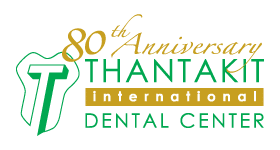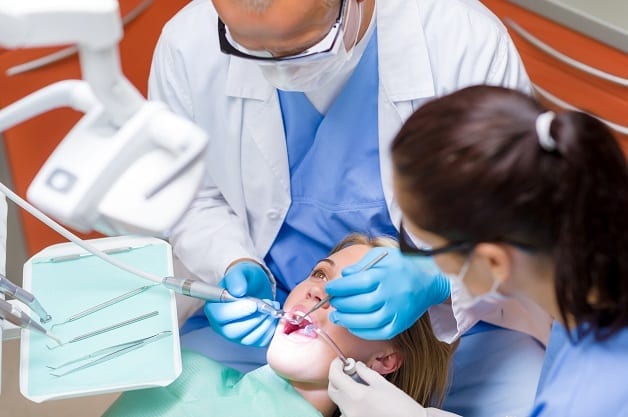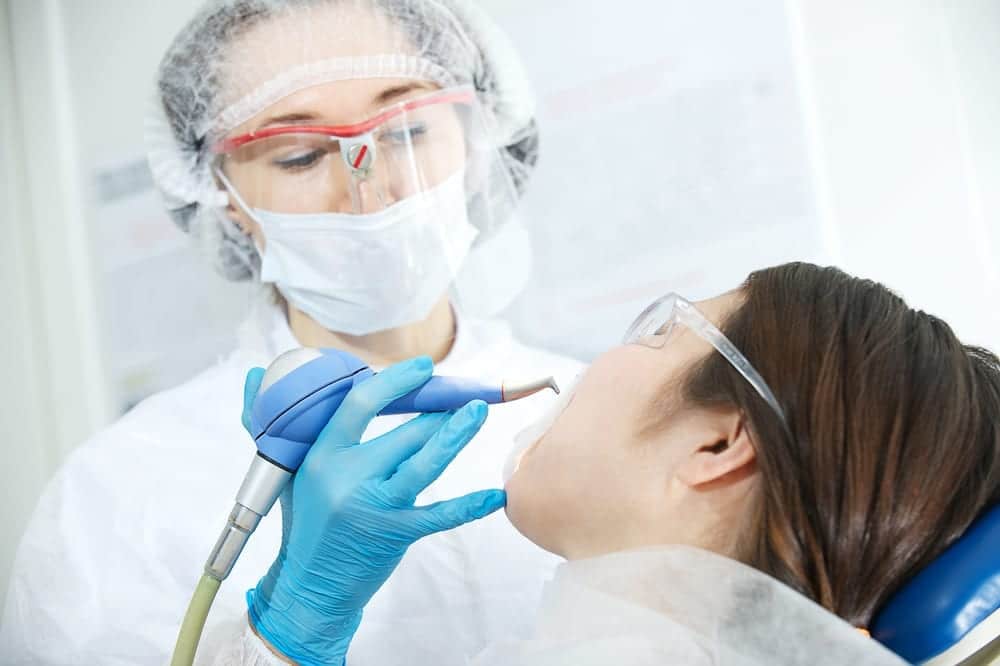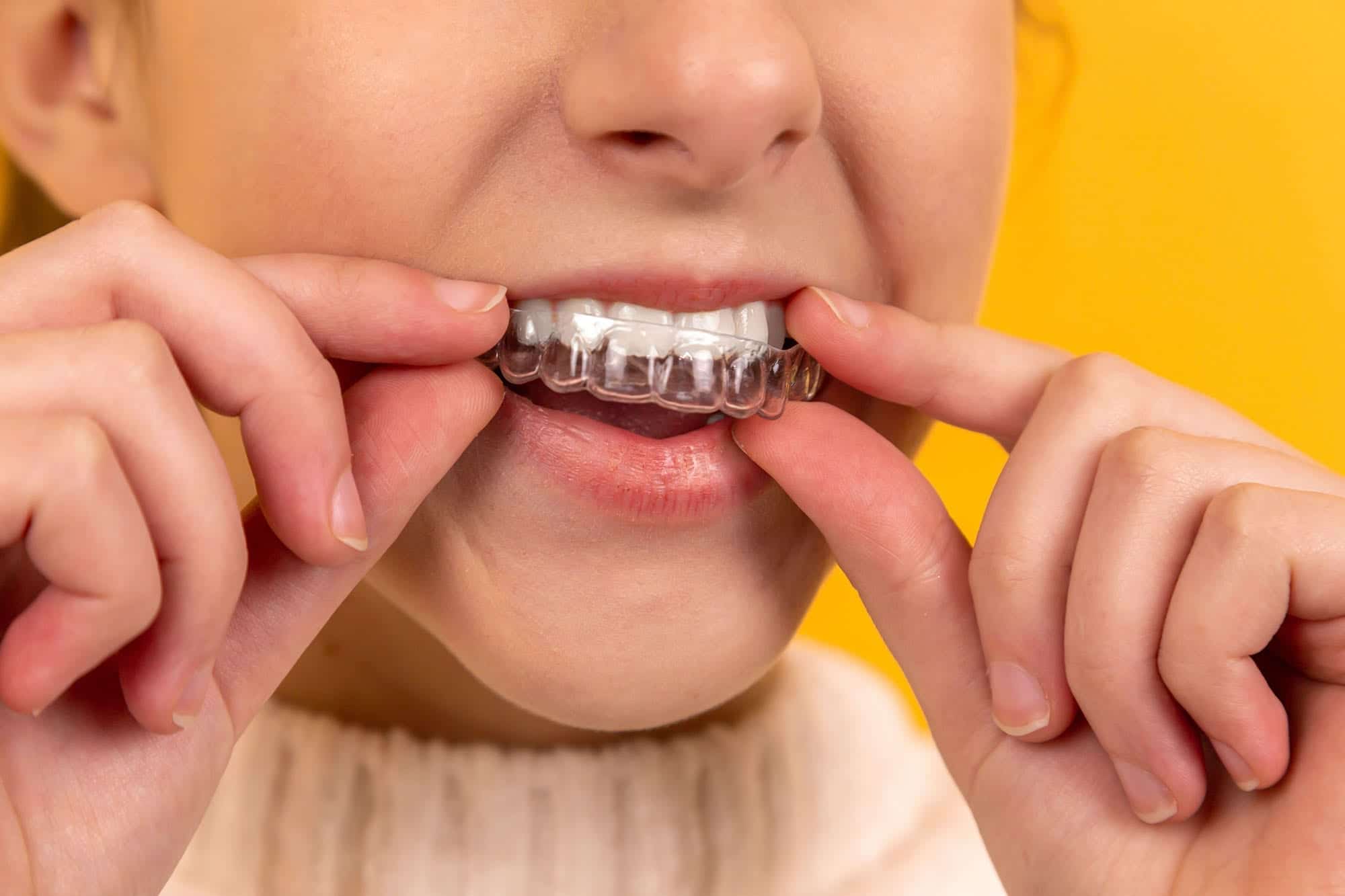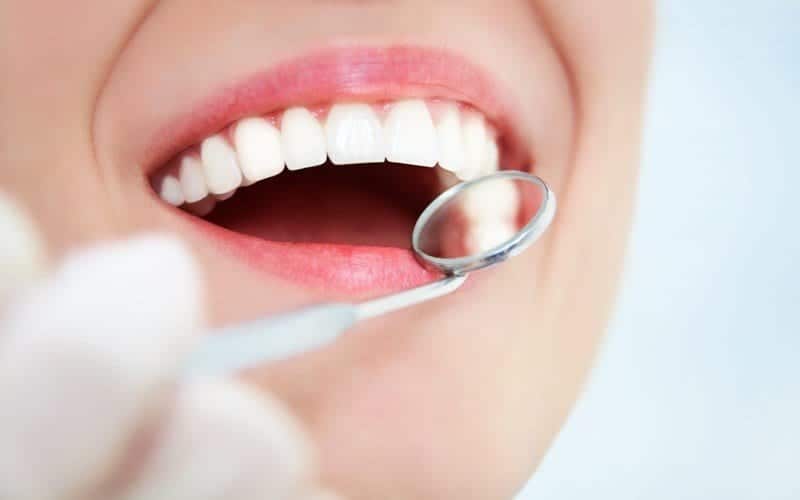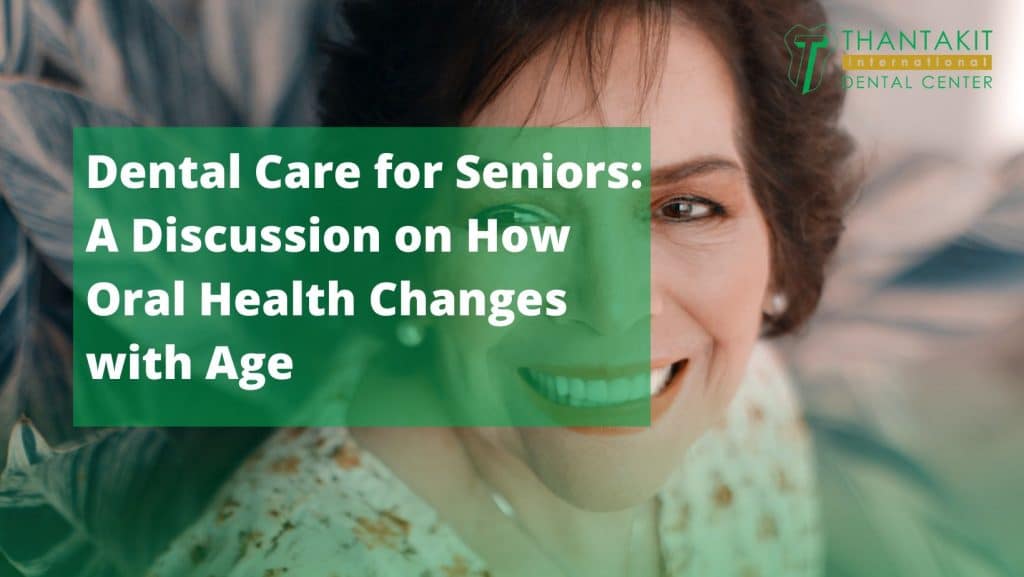Dental Care for Seniors: A discussion on how oral health changes with age and how seniors can maintain good oral health as they get older.
Early prevention will keep “senior citizen” dental issues from cropping up down the line. On the other hand, once you’re already older, the ravages of aging will make you susceptible to these issues anyway.
With that in mind, how should seniors properly handle the oral health changes that come with age?
Page Contents
Keeping Your Teeth and Gums Healthy as a Senior Citizen
Naturally, you can consume and enjoy your meals better with a healthy mouth. Having a complete set of teeth allows you to bite, chew, and masticate your food completely as well.
As an older adult, you might develop issues such as heart disease or diabetes. Therefore, when taking care of your teeth as an elderly person, you also need to keep those conditions in mind because they too can somehow affect your teeth and gums.
For instance, you might have to take medications that cause teeth rot. Or the underlying conditions themselves can impact your oral health.
As you age, keep in mind the following tips to maintain oral, dental, and gingival well-being.
-
Brush Regularly with Fluoride Toothpaste and Floss: Brush your teeth at least twice a day and floss immediately after. Use fluoride toothpaste for good measure.
-
Remove Plaque with Brushing and Flossing: Brushing and flossing assist in the removal of the sticky film of bacteria, sugar, and starch on the surface of your teeth known as dental plaque.
-
The Dangers of Plaque Explained: Avoid plaque buildup because it can produce acidic waste products that remove minerals from the tooth enamel, resulting in tooth decay, dental caries, and gingivitis.
-
Brush in the Morning and at Night: When doing some dental brushing and cleaning, do so after breakfast and before your bedtime. This way, it’s hard to forget and easier to form a habit out of them.
-
Daily Flossing Keeps the Food Bits at Bay: Remove the pieces of food stuck between your teeth by flossing daily. If it’s difficult for you to use floss on your teeth, talk to your dentist about getting a special pick or floss brush instead.
-
Pay Attention to Any Changes in Your Mouth: If something has changed inside your mouth, pay attention to the symptoms. Your risk of getting oral cancer grows as you age. Get your mouth inspected as soon as something crops up.
-
Symptoms to Watch Out For: Make an appointment for a checkup with your dentist or doctor if you suffer from the following symptoms for beyond 2 weeks.
- If an ear of yours is painful but there’s no loss of hearing.
- If your mouth or tongue feels numb or has no sensation to it.
- If you have a swollen jaw or the area around the jaw is swelling.
- If you see a red or white patch inside the mouth’s walls or gum area.
- If there’s a thick area or lump within your lip, mouth, or throat as well.
- If you have trouble moving, chewing, or swallowing food with your tongue, teeth, or jaw.
- If you have a sore spot on your lip, mouth, or throat that lingers, unlike mere canker sores.
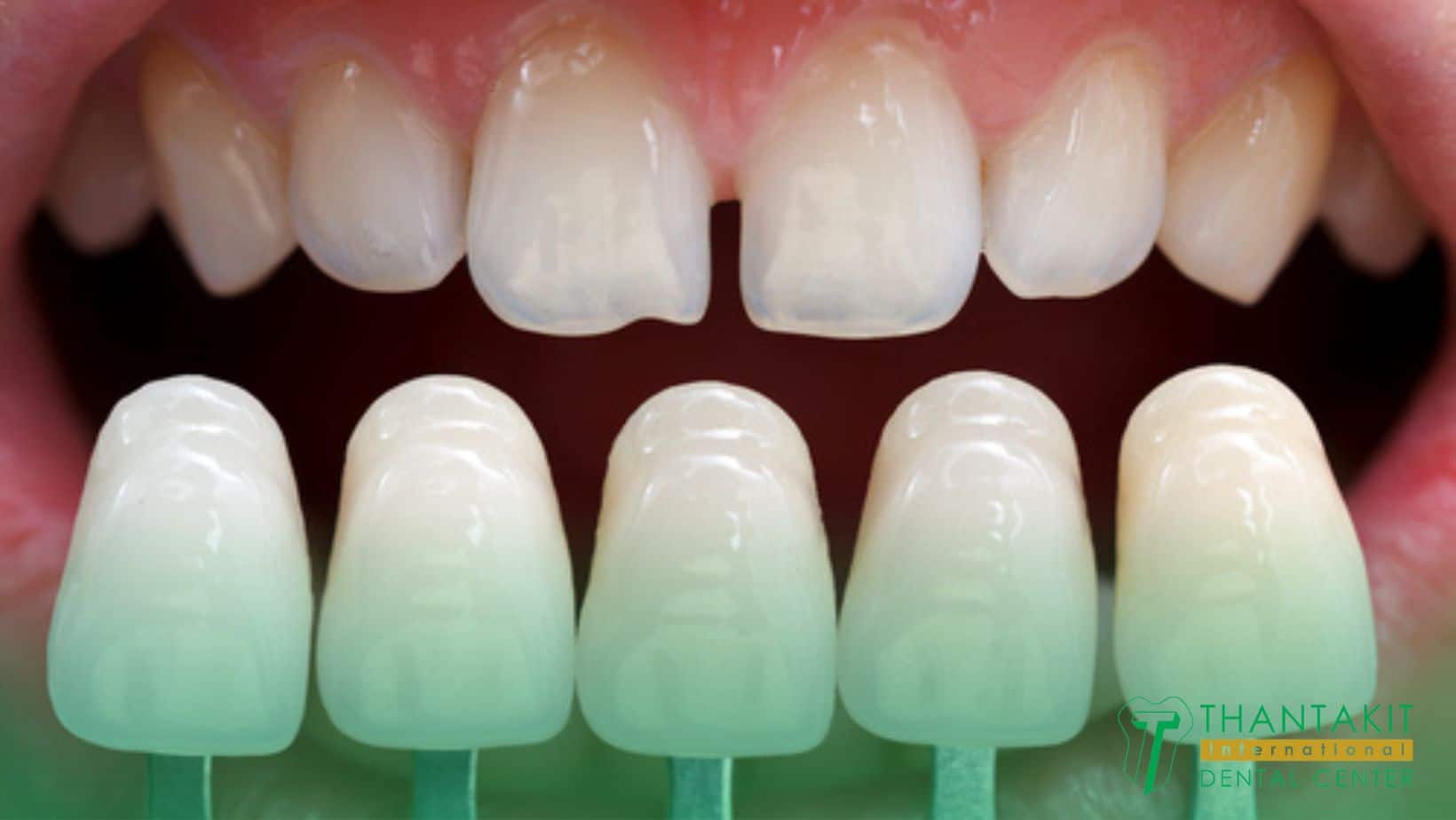
-
Get a Regular Dentist Checkup Schedule: You should at least keep tabs with your dentist once or twice a year. Or you could follow a more seasonal schedule when doing things like maintaining or adjusting your braces.
How often do you see your dentist for checkups and prophylaxis dental cleaning? It should be mainly done on a case-by-case basis. You can ask the dentist himself what’s the best plan for you.
-
Form Oral Habits for the Sake of Your Wellness: You should know the dos and don’ts of oral health as a senior citizen to maintain the integrity of your gums and teeth. For example, do the following.
- Eat Healthy and Cut Down on Sugar: Eat more greens and vegetables. At the same time, cut down on sugary foods like desserts and drinks like soda pop. This is good for your overall health and effectively prevents cavities.
- Don’t Smoke or Chew Tobacco: Tobacco products like cigars, cigarettes, e-cigs with nicotine, snuff, and chewing tobacco can increase your oral cancer and gum disease risk when all is said and done.
- Drink (Alcohol) Moderately: Aside from avoiding sugary soft drinks, you should also mitigate your consumption of alcoholic or hard drinks. Only drink beer or wine for 2 glasses a day for men and a glass a day for women. You can develop cancer by indulging in heavy or binge drinking.
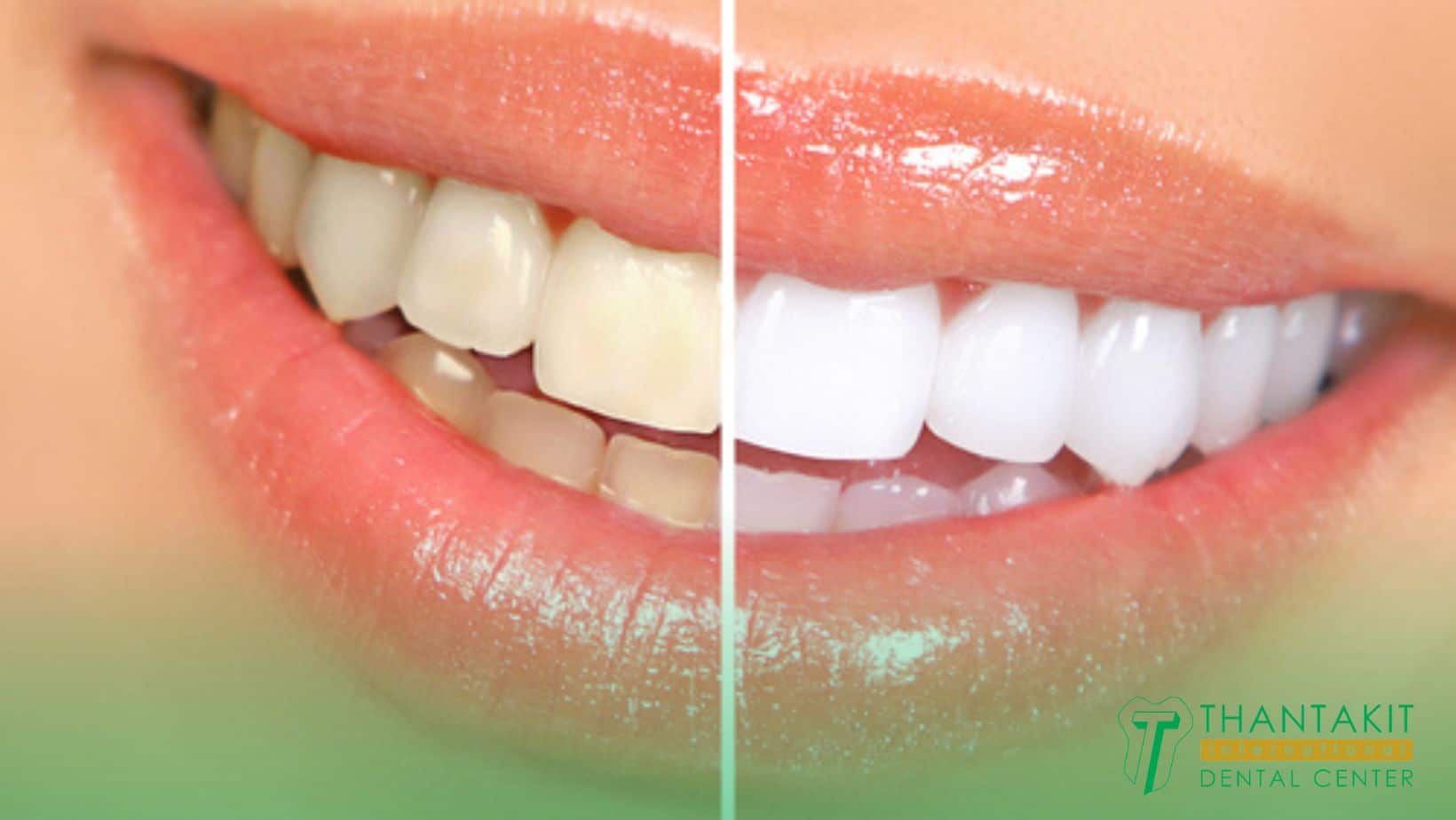
Dental Conditions to Watch Out for as an Elderly Person
Your risks of dealing with any number of oral problems tend to increase as you get older. Sure, age isn’t the only reason or even the most prominent reason for your oral health to fail as you get older compared to when you were younger.
However, certain illnesses such as hand and finger arthritis may make oral and dental hygiene more difficult to accomplish for seniors. Your oral health can also be affected by the drugs you’re taking, thus necessitating dental treatment to compensate.
If you’re at an advanced age, you should be wary of the following issues.
-
Dry Mouth: Your risk for dry mouth also rises as you grow older. This is because your saliva flow might decrease in time. It can be an indicator that you’re suffering from Sjögren’s syndrome, or it might even be a side effect of certain drugs.
Darker teeth might be a symptom of a more serious disease that you should have a dentist check out when push comes to shove. You could get dry mouth from undergoing radiation-based cancer treatments to the neck and head as well.
-
Discolored or Darker Teeth: Your teeth’s dentin or the bone-line tissue underneath the tooth shell or enamel might change colors due to the consumption of stain-causing food and drink for most of your life.
Teeth discoloration also originates from the thinning of your teeth’s enamel shell. The thinner the enamel, the more translucent it gets, thus revealing the darker yellow dentin under it.
Darker teeth might also be a symptom of a more serious disease that you should have a dentist check out just to be on the safe side.
-
Root Decay: A specific type of tooth decay is root decay. It’s ostensibly when the tooth root is exposed due to gum recession, which then causes persistent mild to severe pain. Root decay is usually caused by acids from plaque and gum infection.
As gum tissue recedes from around the tooth itself, the sensitive roots are uncovered. Roots lack enamel to protect themselves from sensitivity. They’re also more decay-prone than the enamel-reinforced crown.
-
Dulled Sense of Taste: Getting older can also impair your taste buds. What this means is that you’ll get taste-based sensory loss wherein the nuances of what your food tastes like are seemingly dulled down or gone entirely.
This diminished sense of taste usually occurs as a side effect of when older people start taking certain medications. Several specific diseases and denture usage can also contribute to the loss or numbing of your taste buds.
-
Gum Disease: If you don’t clean sticky plaque from your teeth surface ASAP, it can cause gingivitis that can worsen to periodontal disease later. This condition is caused by plaque and aggravated by food remnants left inside teeth gaps.
Gum infections can also get exacerbated by poor diets, poorly fitting dentures and bridges, tobacco products, and certain illnesses such as diabetes, anemia, and cancer. It’s a common issue for most old folk.
- Tooth Loss: Tooth loss is usually caused by gum disease and periodontal disease. It starts with loosened teeth due to weakened ligaments.
- Thrush: Again, specific medication and illnesses can affect your immune system, which triggers Candida albican overgrowth orally.
- Stomatitis Induced by Dentures: Stomatitis or inflamed tissue underneath the dentures is usually caused by how well the dentures fit, poor oral hygiene, or buildup of fungus known as Candida albicans.
- Uneven Jawbone: This condition typically occurs due to tooth loss and not replacing missing teeth with a bridge or dental implant restoration. The teeth tend to shift and drift into open spaces left by missing teeth.
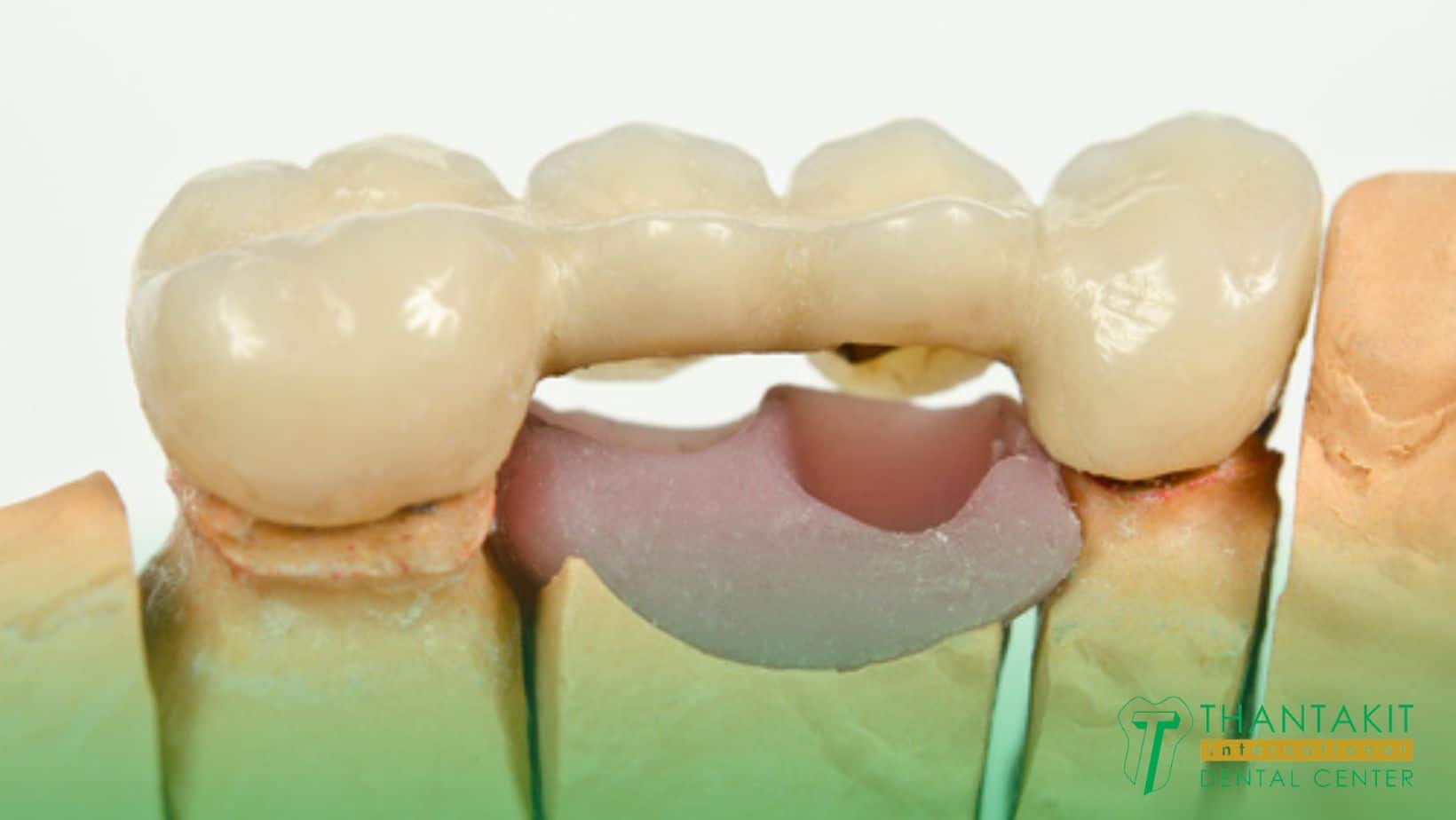
What to Expect During a Dental Exam for Seniors
If you’re an elderly lady or gentleman with a dentist’s appointment, make sure you get a thorough examination that takes note of your past dental and oral health history. The questions asked by your doctor during the exam typically include the following.
-
Do your gums and/or mouth bleed?
-
Do you have sensitive or loose (as in mobile) teeth?
-
Do you have any sores, pain, or discomfort in your mouth?
-
Are there any bumps, lumps, or swellings inside your mouth?
-
Have you noticed any changes in your mouth, gums, and teeth recently?
-
Do you have any difficulty when swallowing, chewing, or tasting anything?
-
When did you last visit your dentist? What was the reason for your last appointment?
As you undergo an oral examination, the dentist will examine the following areas.
-
Your tongue and the interior of the mouth.
-
Your inner cheeks for ulcers, infections, or traumatic injuries.
-
Your neck and face to find any sores, moles, or skin discoloration.
-
Your jaw if there are any popping or clicking sounds on the temporomandibular joint.
-
Your lymph nodes and salivary glands to make sure you don’t have any lumps or swelling.
-
Your bite to see if there are any issues with how the upper and lower jaw fit together when you open and close your mouth.
Your doctor will then ask about your dentures and other dental appliances (like braces and retainers) if you wear any, specifically when you wear them and when you remove them (if they’re even removable).
He will also inspect the appliances or dentures to see if they’re compromised or damaged. If they’re indeed broken down and worn, you might need to have them replaced.
He’ll probably even check if there’s any irritation or issues in the areas of your mouth where the dental device is placed.
More Info on Oral Hygiene and Treatment for Seniors
To keep your teeth healthy and lower your risk for tooth loss, you need to regularly and consistently brush your teeth and floss to stave off plaque and tartar development.
Seniors tend to get plaque on their remaining teeth. Otherwise, they’re already using detachable dentures anyway. Neglecting basic oral hygiene for the longest time will eventually ensure you’ll lose most if not all of your teeth when you’re older.
-
Rinse, Brush, and Floss: Prevention is your best bet instead of treatments that could cost you hundreds if not thousands of dollars. Brushing your teeth, flossing between teeth, and rinsing your mouth with mouthwash are preventative measures against oral diseases.
You should invest in the right oral and dental care products for maintenance purposes so that you’ll only pay a lighter “fee” once you’re older and more prone to cavities, gingivitis, and periodontal disease. It’s also cheaper than actual dental restorations like teeth fillings and dental implants.
-
See Your Dentist Every Six Months: Make dentist appointments every six months or sooner for X-rays, checkups, and dental cleanings. You should also follow dentist recommendations when it comes to your dental hygiene routine every day.
This ensures you’ll reduce the buildup of plaque, lower your risk for tartar, and reverse any existing gingivitis you might have instead of aggravating it into full-blown periodontitis. Your dentist will help track the state of your mouth, teeth, and gums every visit.
-
Discuss Dry Mouth with Your Dentist: Seniors with dry mouth should discuss it with their dentist as soon as possible to get a viable solution for the problem. A dry mouth is when you lack enough saliva or spit inside it to keep itself moist. This makes it harder for you to talk, swallow, or eat food.
Having a dry mouth also makes it easier for you to develop a bacterial infection or suffer from tooth decay. The condition could occur as a side effect of the medications you take. It might also occur when you’re undergoing radiation treatment or chemotherapy for cancer.
-
Medicare and Dental Care Assistance Programs: Medicare lacks coverage for most dental care services. It might be prudent to avail yourself of private dental insurance instead. You can also look into low-cost dental care to limit your out-of-pocket expenses.
Call your local dental society for more details on senior assistance programs. Otherwise, consider spending money on dental tourism in places like Thailand. Their dental care service packages are significantly cheaper than “Western” prices.
-
Dental Tourism for Affordable Dental Care: A potential alternative you can use is dental tourism. You can combine your vacation time with your dental needs by availing a dental tour in Thailand through respected dental centers like Thantakit International Dental Center.
Thantakit offers dental services for seniors that are more affordable than the ones you can avail yourself of locally even when you take into account travel costs.
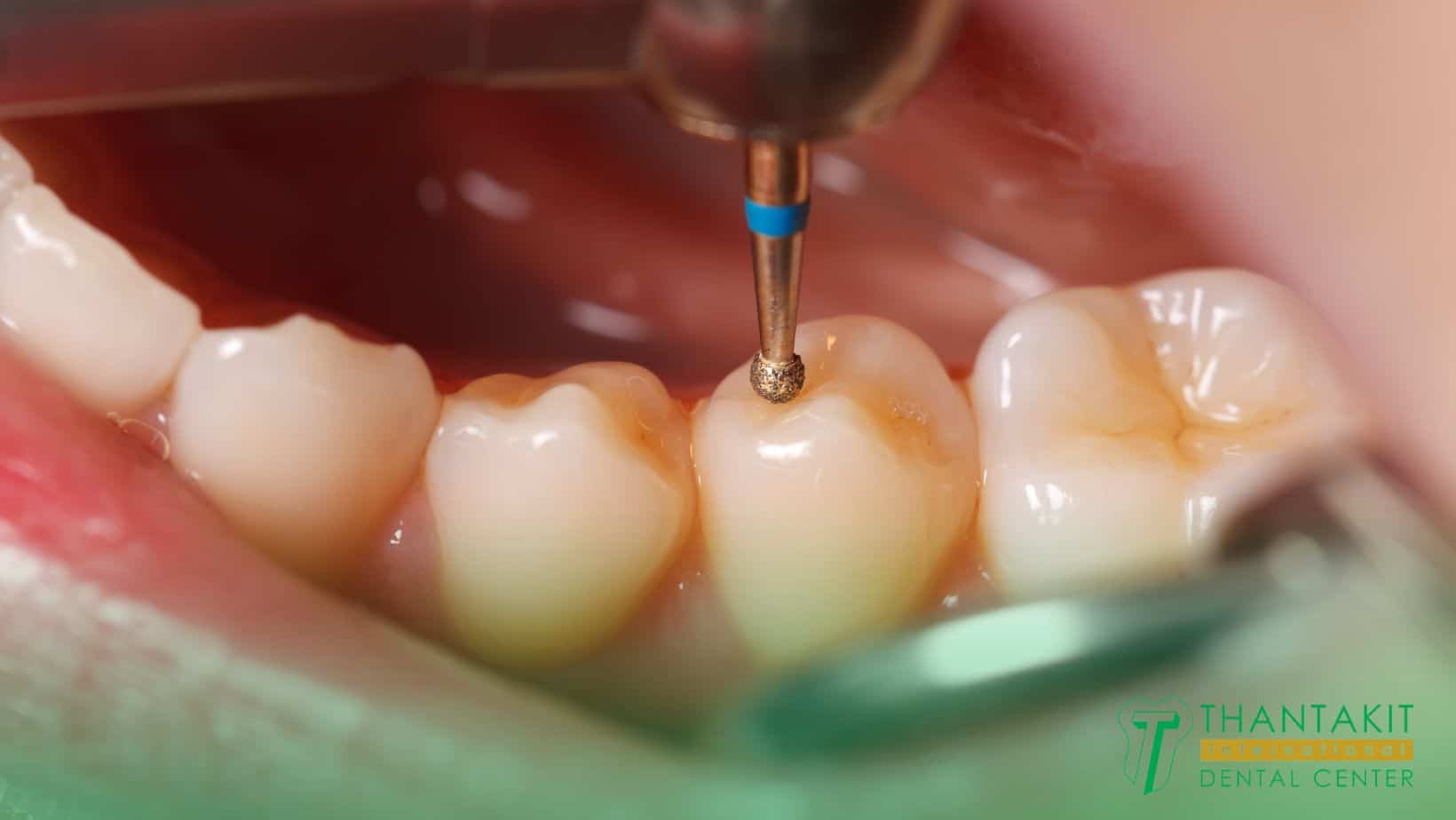
Senior or Elderly Dental Care Financial Aid
If you’re a senior or elderly person who has difficulties affording out-of-pocket dental care in light of your fixed or limited income as well as depleted savings, you can get discounts from many dental clinics and centers in the country.
Senior citizen discounts are available for seniors, indigent or otherwise. You can also avail yourself of sponsored assistance programs from dental school clinics and public health clinics to get those reduced fees. If all else fails, avail yourself of Thantakit services through dental tourism.
Thantakit International Dental Center is Thailand’s longest established dental center. Situated in Bangkok, our clinic is renowned across the world as a destination for world-class dentistry, with most of our patients flying to us from Australia.
Please contact us today and get a FREE dental consultation.
